Like an unconventional setup of the television show "M.A.S.H," 17 Soldiers left the comfort of performing surgeries in an established clinic to provide veterinarian care within the restriction of tents and electrical generators for military working dogs at the First Republic of Korea Army Military Working Dog Center, Chuncheon, South Korea.
The 129th Medical Detachment (Veterinary Medicine), U.S. Army Yongsan Garrison, South Korea, is one of only three mobile veterinary clinics in the U.S. Army regularly conducting field exercises. The field exercises are not only practice runs for these Soldiers, and everyone else involved, but actual veterinary operations because surgeries and care are provided to the local animals of the deployment areas.
"The 129th Medical Detachment offers an expanded level of field care including medical treatment and surgical sections," said Col. Mack Fudge, commander of the 106th Medical Detachment (Veterinary Service.) "It provides imaging, a medical laboratory, hospitalization, and preventive medicine and civic actions program capabilities.
In garrison, the 129th runs the veterinary hospital located on Yongsan which offers referral and specialty veterinary care to government and privately owned pets of Department of Defense beneficiaries."
The 129th is dedicated to the Korean theater of operations. It deploys to various training locations and installations throughout Korea as part of field training exercises. During their recent exercise, the 129th provided medication, in-patient care and performed several surgeries for the FROKA Military Working Dog Center dogs.
"We have ten kennels set up and a fully operational outpatient clinic," said Capt. Sean Majoy, the executive officer in charge of the 129th Medical Detachment (Veterinary Medicine.) "We also perform radiology and surgery."
When radiology or surgery is performed, a lot of the equipment used in the field is from the garrison home station. Equipment is literally packed up in the clinic and deployed to the field site. The idea is to be mission ready and deployable.
"We are a mobile unit with the capability to deploy," said Sgt. David Panaway, an animal care specialist with the 129th Medical Detachment (Veterinary Medicine.) "I think it is good we operate this way. It keeps us mission ready. Almost everything here is used on a day-to-day basis."
Deploying to different parts of the country for training is practical for Soldiers stationed in South Korea. Their real-world training simulations keep them well prepared for conflict.
"In the case of a noncombatant evacuation, you would have to move and evacuate a large number of pets," said Majoy. "We have to have the skills and capabilities to treat them."
These crucial skills involve having the detachment up and running enough to start receiving patients and providing limited care within about four to six hours of arrival, said Fudge. It usually takes about two and a half days for it to be fully set-up and operational.
"We arrived here on a Saturday and started setting up right away," said Pvt. Gable Jefferson, an animal care specialist with the 129th Medical Detachment (Veterinary Medicine.) "By Sunday, we had almost completely set up and by Monday we were fully operational."
Taking a break is not an option for the detachment after setting up. The patients started to come in first thing Monday morning.
"On Monday, we had a dog come in with heat stroke," said Jefferson. "The normal temperature for these dogs is usually 99 to 100 degrees, but this dog had a temperature of 106. We weren't expecting anything like this, but we all reacted very quickly and the dog is okay now."
It was not only training for the 129th, but it was also an opportunity to provide training to the ROKA veterinarians, help build on the ROK-U.S. alliance and showcase the U.S. Army's veterinarian field capabilities. This is the largest dog center in the ROK military and it has over 500 dogs attached to it.
"The FROKA MWDC has a large number of working dogs at the installation, offering a good set of patients for the field hospital to support which would well put the hospital through its paces," said Fudge. "It's the first combined MWDC for the ROK military, offering the opportunity for our Soldiers to work with ROK Army, Navy, Air Force and Marine dogs, handlers, and veterinary personnel."
"After we went operational, we told them (MWDC) they could bring in five dogs for treatment in 20 minute intervals." Jefferson said. "Instead they brought in seven dogs all at the same time. The language barrier can be a bit of a challenge to work through, but overall I think the obstacle of working through it has been good training."
Many of the ROK servicemembers were grateful for the veterinary care provided to their best friends, battle buddies, beloved pets, also known as: military working dogs.
"The 129th is excellent," said Pfc. Park, Tae-joon, a dog handler with the ROKA 2nd Security Company, 9th Ammunition Depot. "They are very thorough with the examinations on my dog and extremely caring. Everyone here at the MWDC is talking about how skillful they are. I am glad they are here. Of course there is a language barrier. Luckily, there is a KATUSA always there to help out with translation."
Korean Augmentees to the U.S. Army are an essential link to the success of the combined efforts and exercises of the U.S. and ROK forces.
"U.S. Soldiers worked and played very closely with ROK Soldiers," said Fudge. "Their only organic cultural and language linkage was via KATUSAs. Our 129th KATUSAs performed magnificently. This was probably the first time they have really been tasked and tested this intensely in a field/deployment setting.
On the flip side, the ROKA veterinarians were also grateful, not only for the veterinary care provided, but for the opportunity to work side-by-side with the U.S. veterinarians. They were able to learn new techniques and also view how the 129th operates in a field environment.
"They're very courteous and eager to learn our techniques, not just in the field, but also in the kinds of protocols we use for anesthesia, surgery and medicines regarding outpatient cases," said Majoy. I've been here for two months, and this is my first trip out on a field exercise. My understanding is the ROK Army is so happy with the way things have gone, they want to make this an annual exercise."
With many of the Soldiers and leadership new to the country, this training was also an experience in learning a new culture as they immersed themselves into the ROK army.
"This was a really interesting experience," said Pvt. Kelli Helfinstine, an animal care specialist with the 129th Medical Detachment. "I just arrived to Korea a few months ago and here I am on a ROK military base. It's a good opportunity to learn about Korean culture. We eat what they eat, shower like they do and work on their hours. In a way, it's like we are augmenting them. It's good to see the differences in our cultures. I'm learning a lot, especially for someone like me who is new to a country."
A U.S. Army Food Service Specialist from the 106th Medical Detachment (Veterinary Service,) Pvt. Genifer Pena, was also deployed with the 129th. Her main mission was to embed with the FROKA MWDC's dining facility and cook one American dish with every meal for ROK and U.S. Soldiers.
"Cooks here are curious about what I do," said Pena. "We share dinner, recipes and teach each other. There is great unity in the kitchen."
Dishes such as "Mac & Cheese," breakfast burritos, Spanish rice and brownies were a welcomed change into their ROK military diet with many coming back for seconds. Pena also received a ROK Army cook's uniform as a token of friendship.
"She has been nothing but great," said Sgt. Nam Goong-dong, senior cook of the Military Working Dog Center. "Although we cannot communicate as much as we would like to, we get along just fine."
Some Soldiers even put down their scapulas and medicines to share American culture and help teach the English language to their counterparts during the less-busy nights.
"Both ROK and US Soldiers seemed to have learned a lot," said Fudge. "There were even English and cultural training classes given each night to FROKA Soldiers by the 129th Soldiers."
With the achievement of this exercise and previous successful deployments, many optimistic exercises and training opportunities lie ahead for the 129th and Republic of Korea
"Before the exercise was over, both the ROK and the U.S. veterinary folks were asking to make this an annual event," said Fudge. "The secondary and tertiary benefits are amazing. The 106th Headquarters was offered a great opportunity to exercise and refine its logistical support of a subordinate unit. There are already plans in the works to expound on this initial exercise and work towards collaborative training and operations around the Peninsula."
While deployed to the MWDC, the129th only provided medical aid to military working dogs, but the 129th Medical Detachment (Veterinary Medicine) is capable of deploying Peninsula-wide to provide veterinarian care for all animals, just as they would in their garrison environment.
"It's sort of like a combination of a Forward Surgical Team and a Combat
Support Hospital...or more like an old MASH, but for animals," said Fudge.
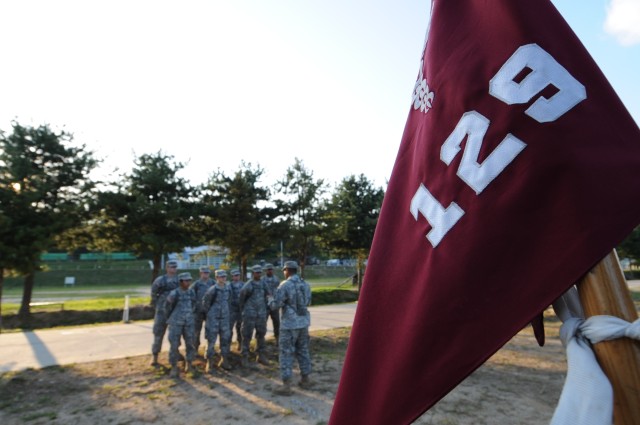
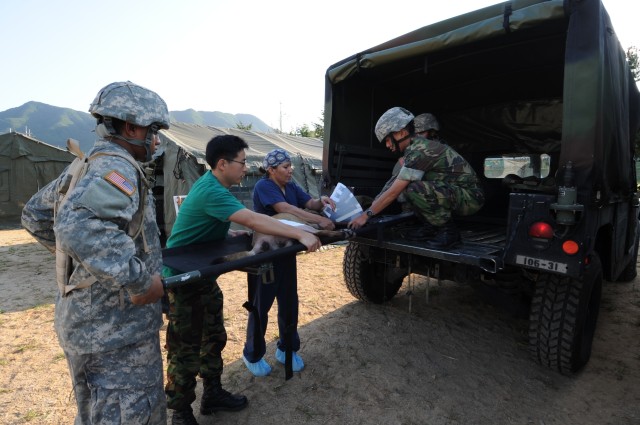
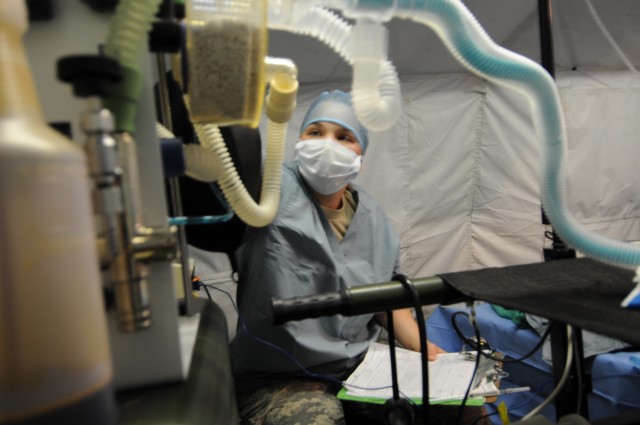
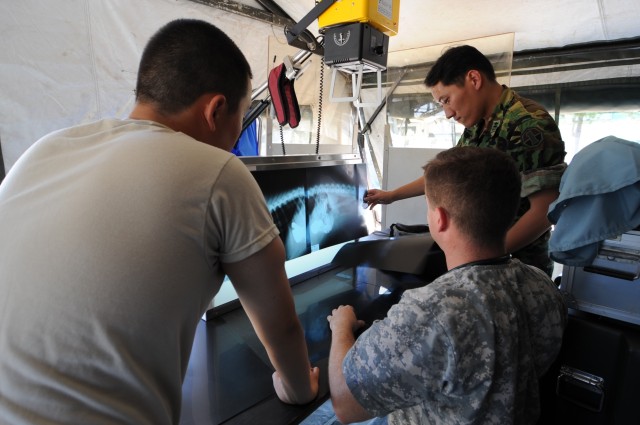
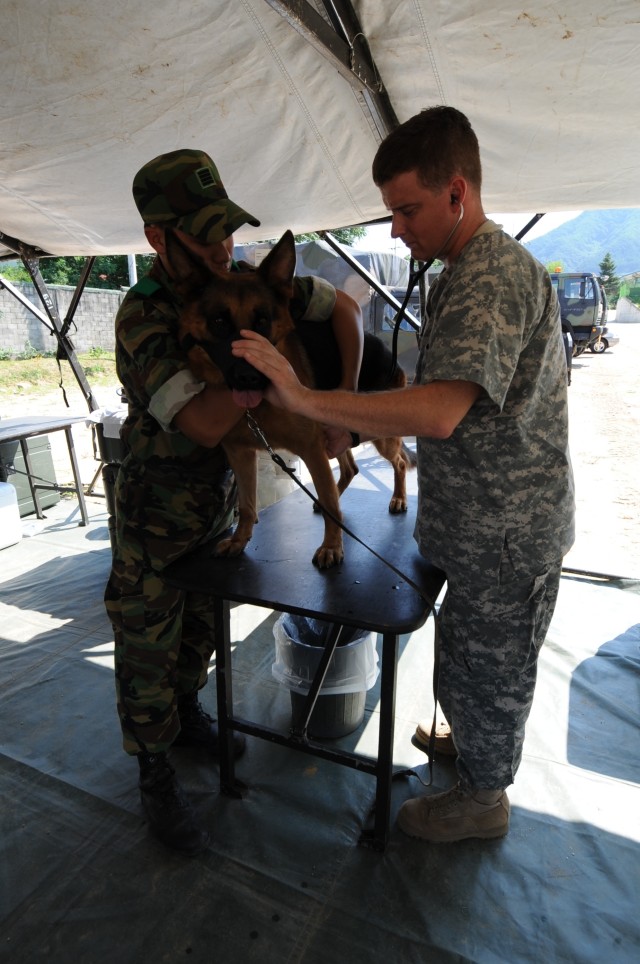
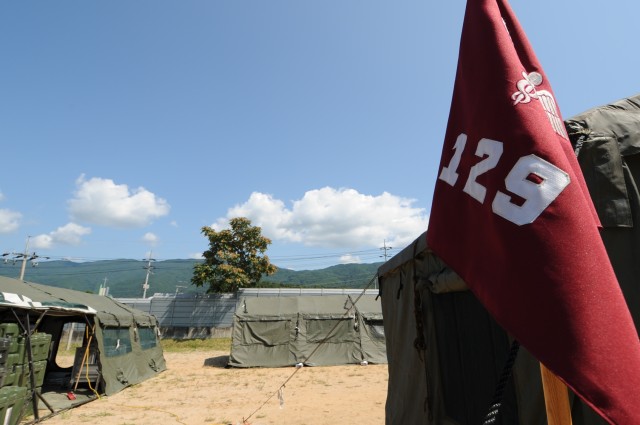
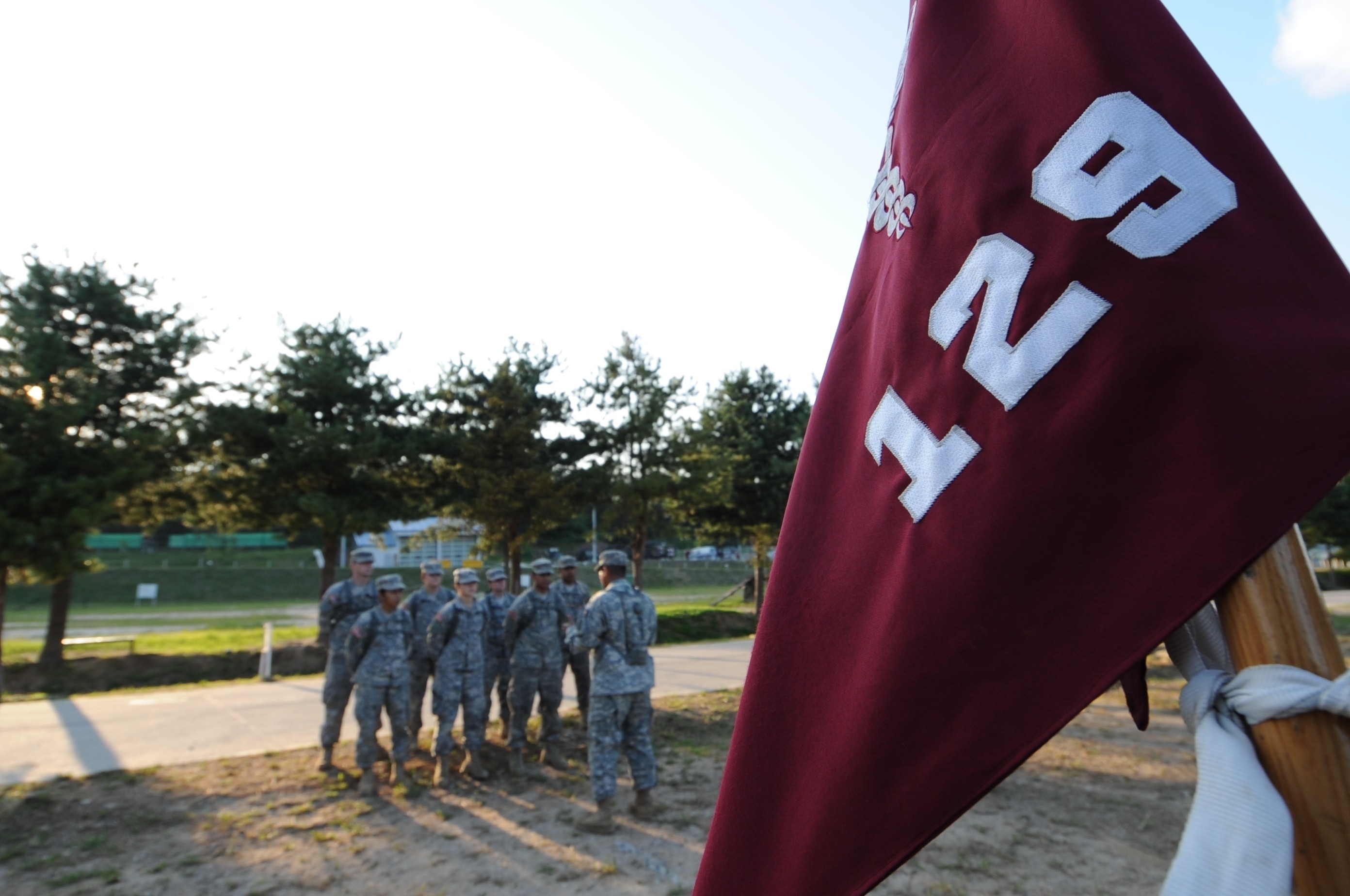
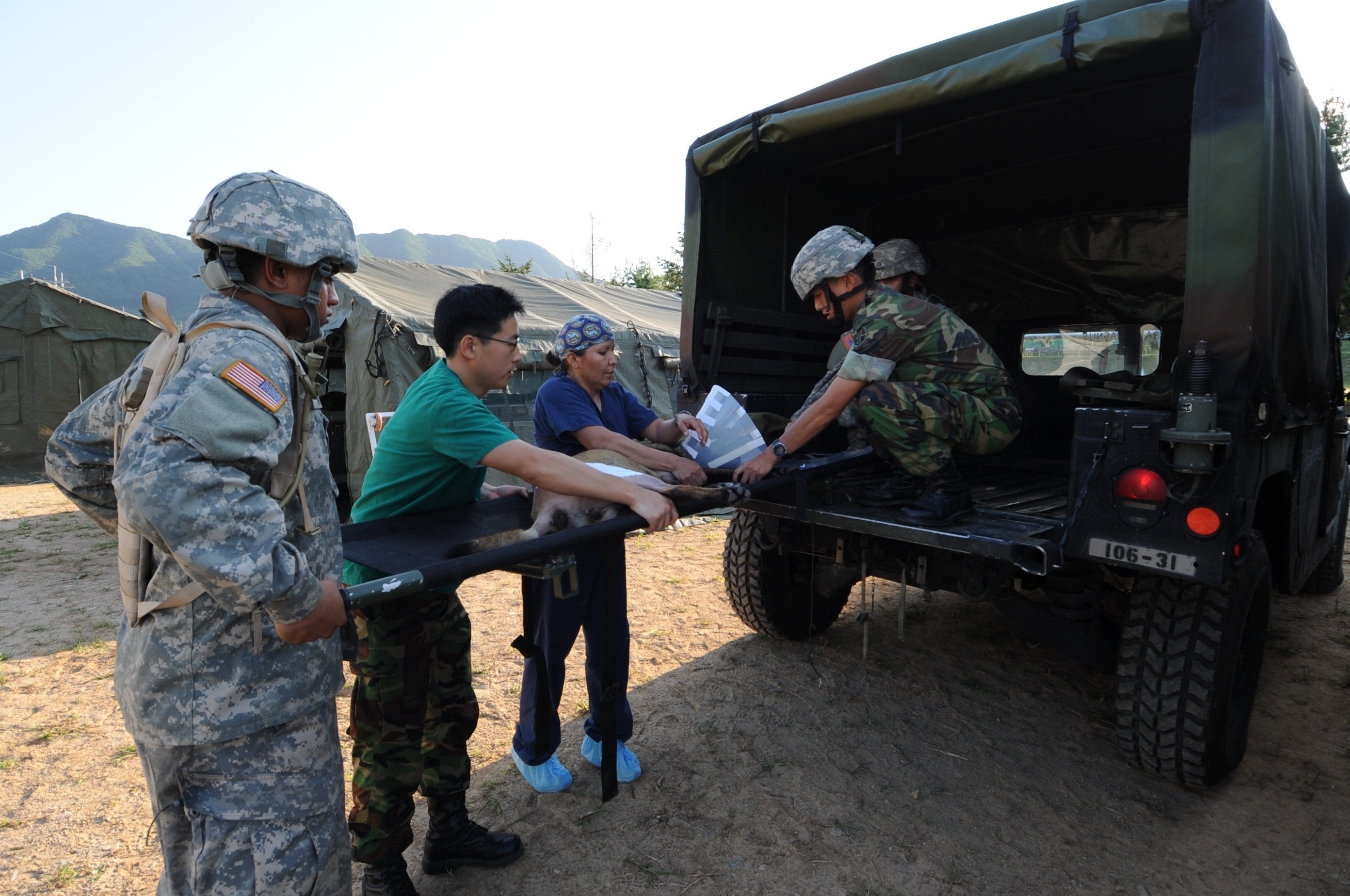
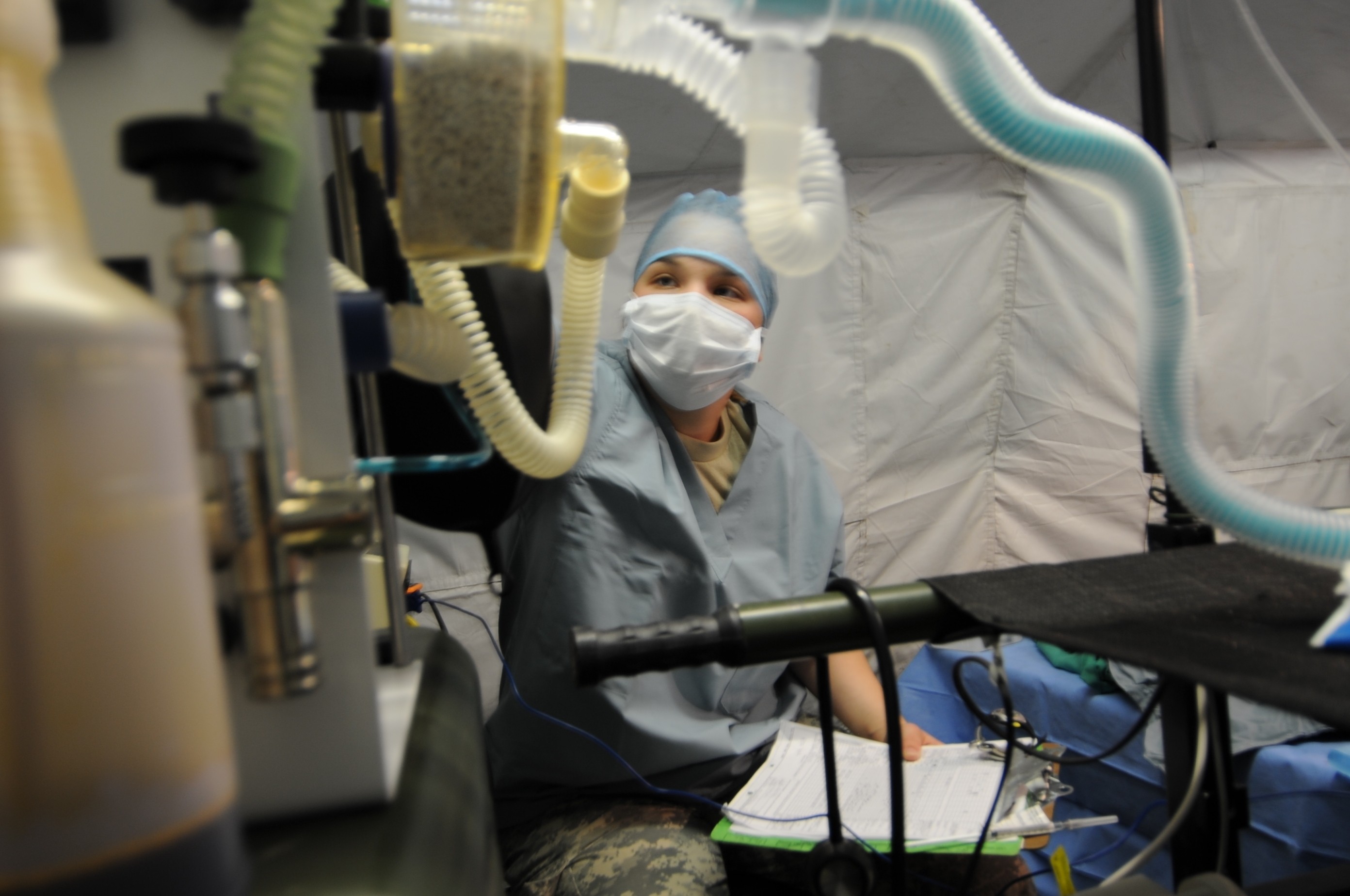
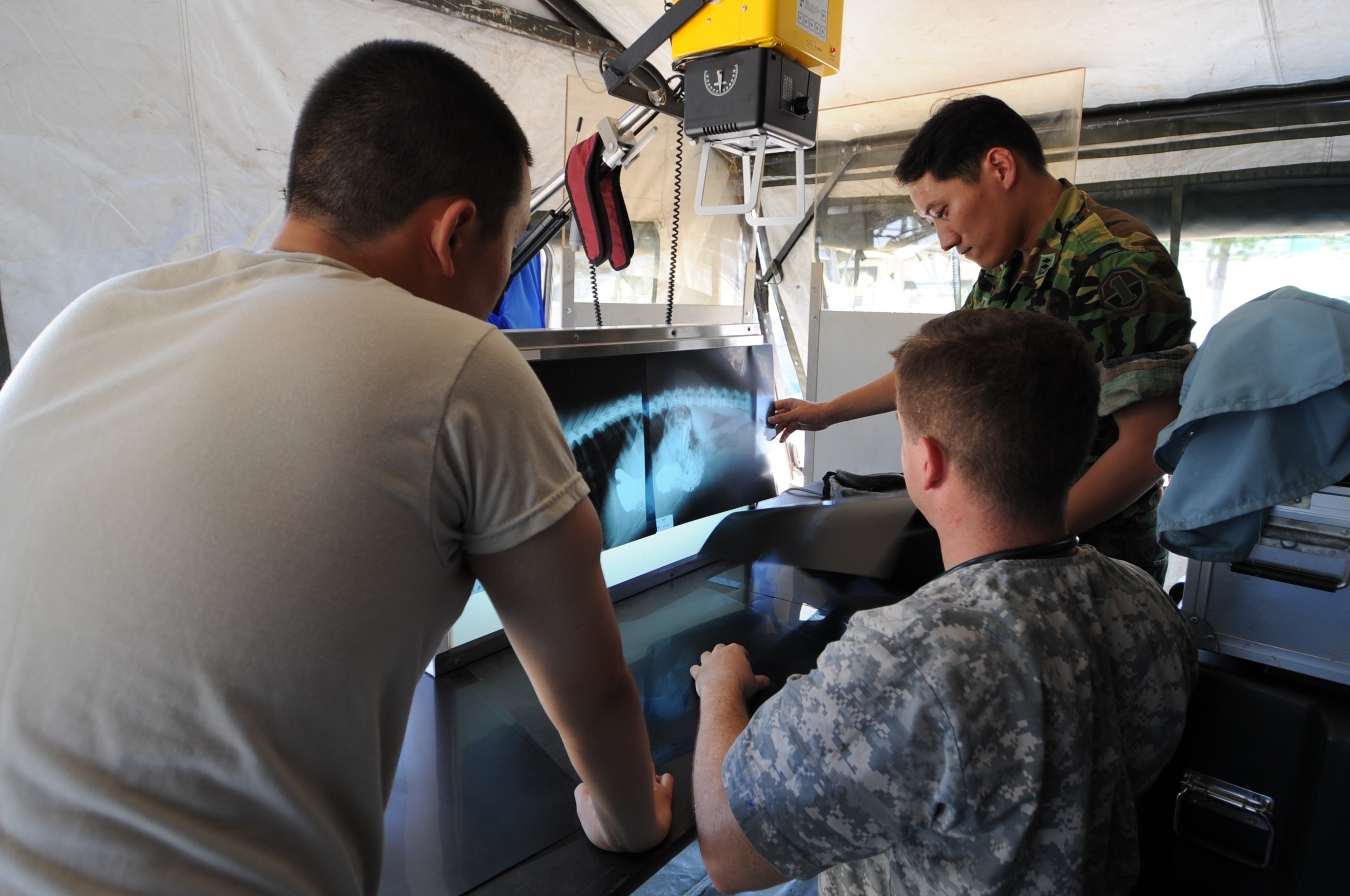
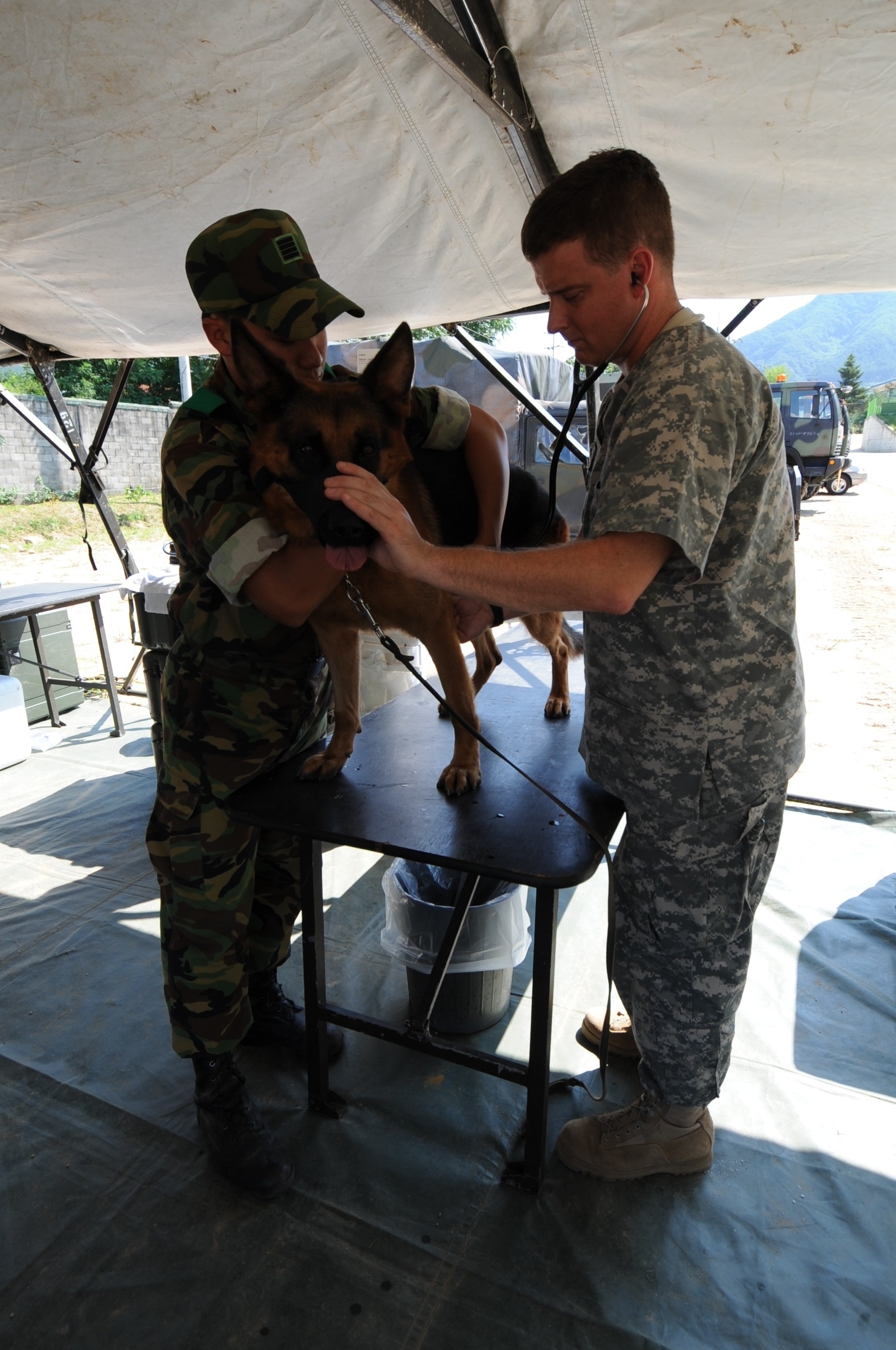
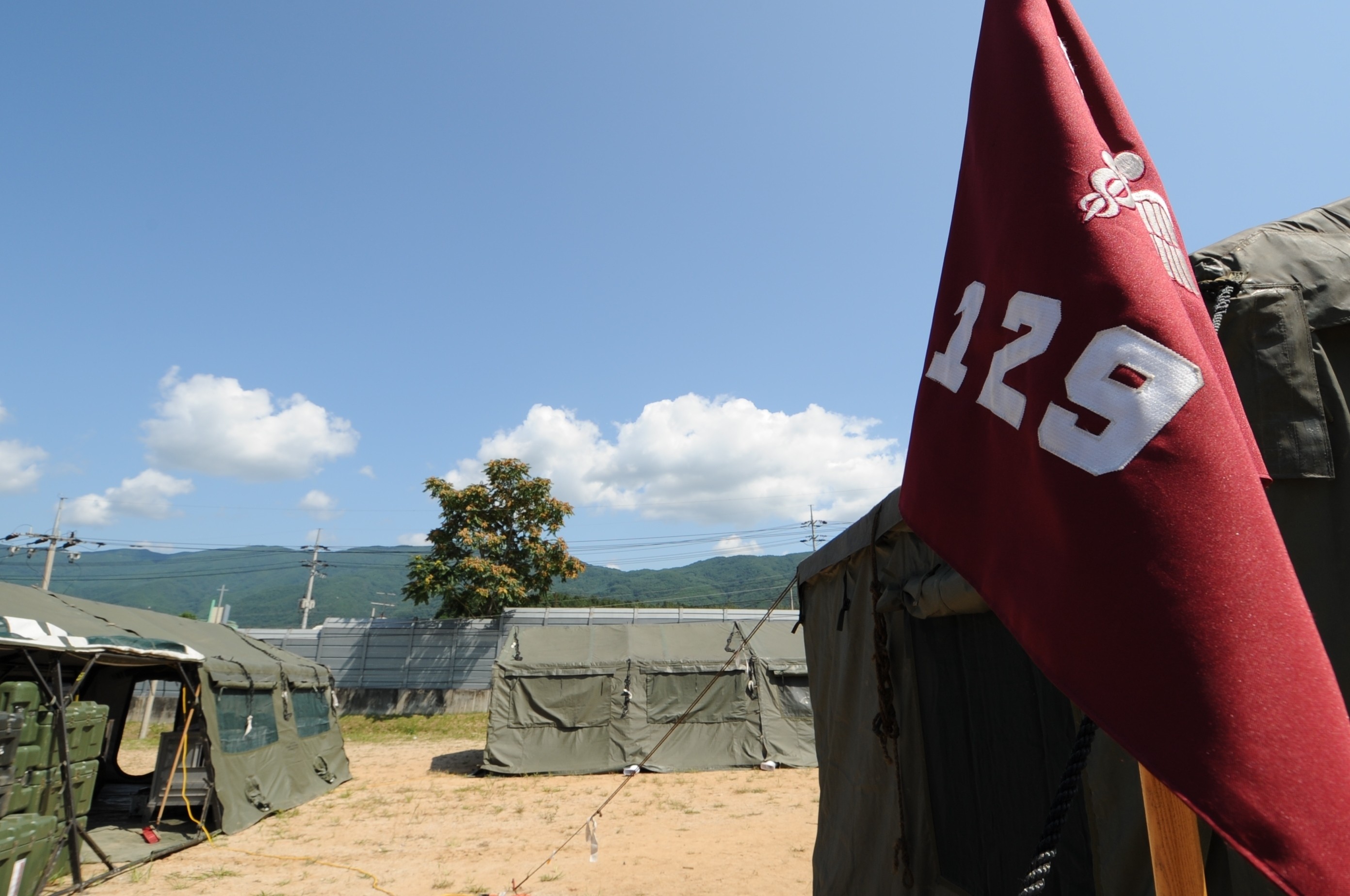
Social Sharing